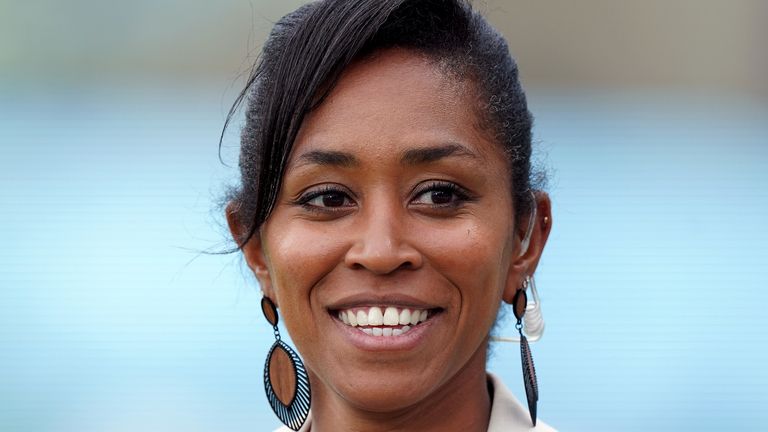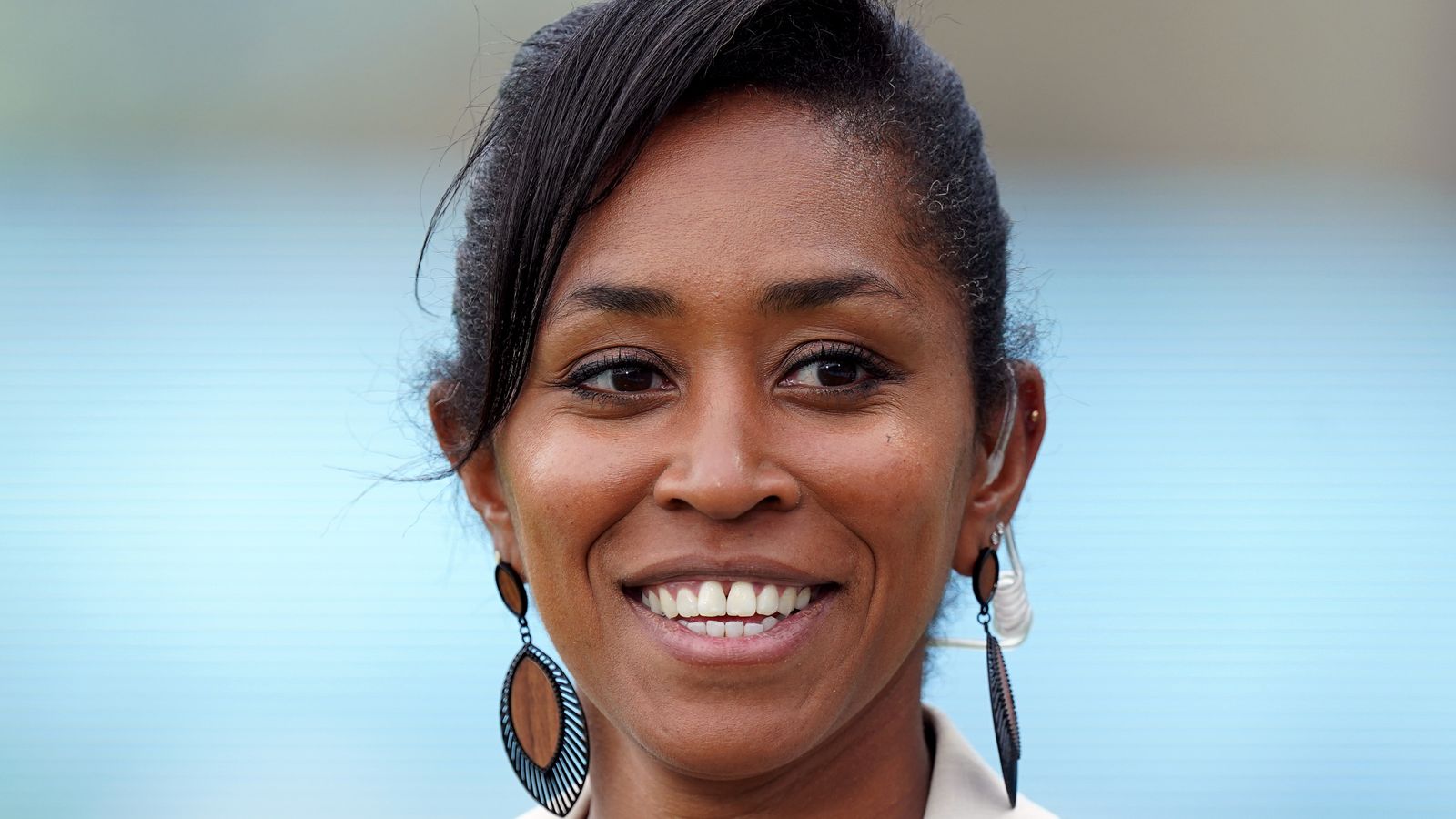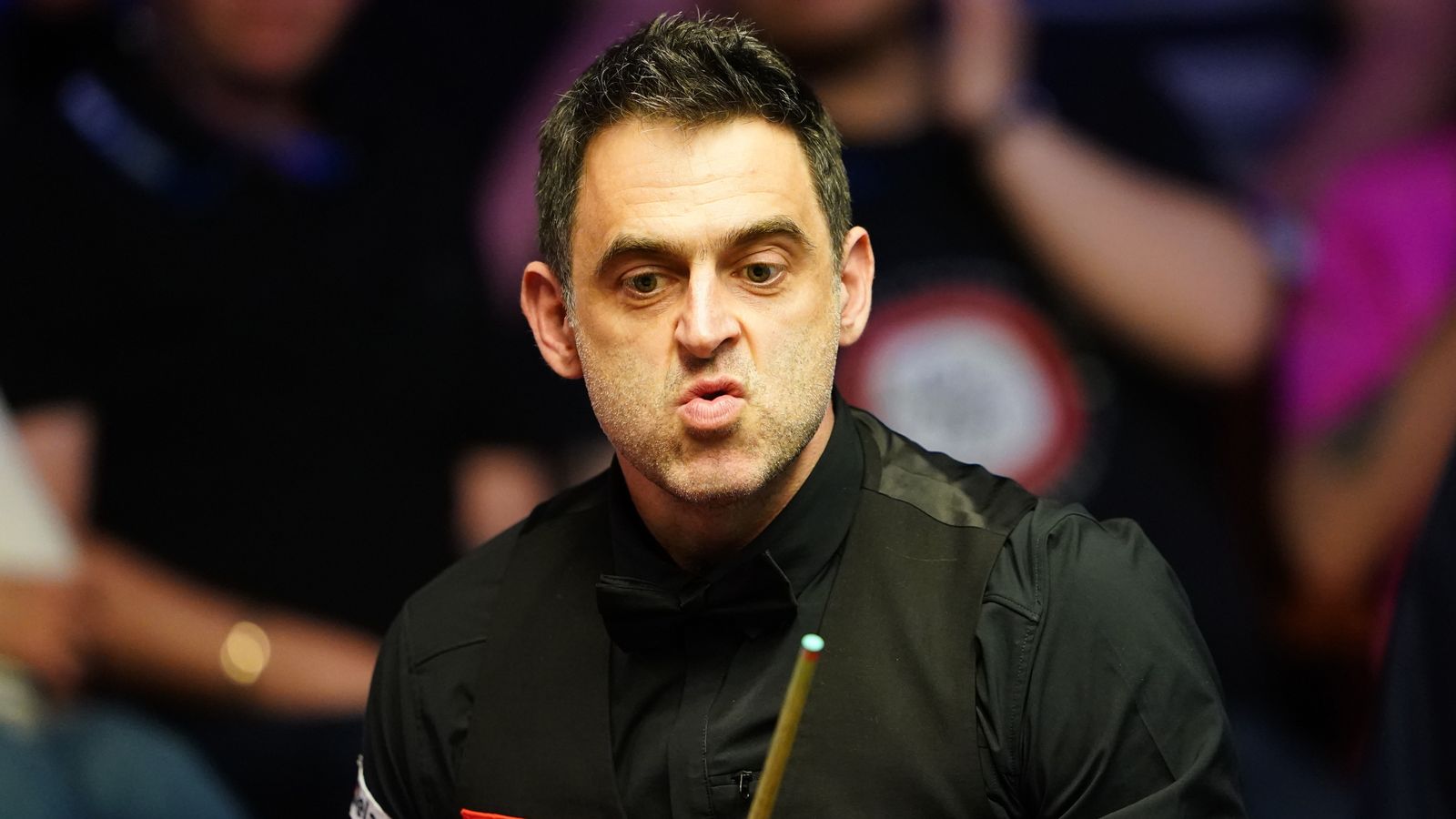ECB releases action plan to tackle racism and diversity, including investment in ACE programme to create opportunities for young Black cricketers | Cricket News

Ebony Rainford-Brent set-up the Afro-Caribbean Engagement (ACE) project in January 2020
The England and Wales Cricket Board (ECB) is offering financial support to the ACE programme with the goal of providing more opportunities for young cricketers from Black communities across the country.
ACE was established by Surrey Cricket Club in 2020 with a view to engaging a new generation of children and young people from Black communities within the recreational game and talent pathway.
The programme will use financial support from the ECB to expand into Nottingham, Manchester, Leeds and additional London boroughs, having already seen success in Birmingham and Bristol during 2021.
ACE aims to build grassroots cricket programmes, develop talent pathways and talent ID systems to increase access for those from Black communities. Since its launch, the programme has created opportunities for more than 6,000 people, while over 10,000 young cricketers are expected to pass through ACE’s Talent ID programme each year in the new areas.
Ebony Rainford-Brent, chair of the ACE programme, said: “This is a really significant moment for ACE. Although we started small in south London, we always envisaged this programme was going to have a big national impact. To be in six cities and on both sides of the Thames in London within two years of existence proves that our model is starting to change the game.
“ACE is focused on connecting the dots to help under-represented groups from the grassroots to the elite. We know this programme will help open up new pathways to do exactly that and are excited to partner with the teams at all these different counties to have an impact.
“We’re really grateful to the ECB for this meaningful support, allowing us to build on our initial backing from Sport England and start taking ACE to the next level – a truly national organisation.”
The ECB also plans to fund a National Operations Manager role to support the delivery of the proposed expansion.
Over 40,000 school children are set to participate in ACE school schemes annually as sessions are launched in primary and secondary schools.
Clare Connor, Managing Director of England Women’s Cricket, added: “The team at ACE are doing brilliant work creating opportunities for young people from Black communities to play cricket and develop their talent.
After their early impact in south London, Bristol and Birmingham, we are really excited to be helping ACE to increase access to cricket in more urban centres across the country.
“We know that targeted opportunities and support are vitally important in making cricket a game for everyone and ensuring that every young cricketer can fulfil their potential.”
ECB action plan to tackle racism and discrimination
The ECB’s implementation of cricket’s game-wide plan to tackle racism and promote inclusion and diversity also includes the expansion of the ECB’s Community Talent Champion programme to a further 10 urban locations, helping identify talented girls and boys in non-affiliated cricket environments and connecting them to the existing talent pathways.
In addition, the ECB will offer a further 3,000 Foundation coaching bursaries during 2022 to help more people from underrepresented groups take their first steps into cricket coaching or develop their skills. At least 15 bursaries will be available at Advanced and Specialist level and 100 Coach Development Scholarships will provide funding, mentorship and work opportunities.
They are also committing an initial £1m to reduce financial barriers for young people from disadvantaged backgrounds to access the talent pathway, with the work set to be supported by Loughborough University as part of a new partnership to gather comprehensive data on the demographics of cricket’s talent pathways.
EY Lane4 has meanwhile been appointed to conduct a review of dressing room cultures across professional cricket in England and Wales. The review, which will run across the 2022 season, will build an understanding of what is working well in professional cricket environments as well as identifying how cricket can achieve healthy and high-performing cultures.
In 2021, the ECB established a new mechanism allowing anyone to report an incident of discrimination that they have experienced in cricket, anonymously if preferred. The new game-wide system is operated by the ECB with support from independent experts Red Snapper, who provide advice and support to the ECB and the Counties in managing the reporting process and investigating and responding to complaints.
It had been the ECB’s intention to appoint an independent third-party operator to take over the end-to-end system and develop it further as best practice evolves. After their preferred supplier decided not to proceed with the appointment, the ECB is currently reviewing alternative options and expect this process to be completed by the ECB’s new Anti-Discrimination Unit, which once established, will assume responsibility within the ECB for the reporting process
Anti-Discrimination training has now also been made available across the ECB staff and the wider cricket network, with 65 per cent of the workforce having completed the training since January. The executive team of the ECB has completed an inclusive leadership programme, which will be rolled out further across the game this year. A bespoke version of the training programme is in development for cricket’s 40,000- strong volunteer base to ensure that it is adapted for the needs of this important audience prior to being rolled out during the 2022 season.
The ECB stated that county organisations are making progress to increase Board diversity ahead of the April 30 target for achieving 30 per cent female representation, with more than 30 county organisations to appoint at least one new Board Director before April. It is anticipated cricket will reach an average of more than 30 per cent female representation and 15 per cent ethnic diversity by the deadline, up from 20 per cent and 10 per cent, respectively, since November 2021.
The ICEC launched its Call for Written Evidence on 10 March 2022, as the second stage of its listening process. The first stage was an online survey in November and December last year, which saw more than 4,000 people complete an online survey about their experiences in the game.
The Call for Written Evidence asks specific questions relating to equity in cricket grouped into five themes: talent pathway and progression into professional cricket; culture; good practice; complaints and discipline (discrimination-related); and governance and leadership. The Call for Written Evidence is open to all involved in cricket, and will remain open until 5pm on Wednesday 20 April 2022, while the ICEC is receiving oral evidence directly from key stakeholders, conducting research into developments and trends in the game, and gathering information from cricketing organisations.





Pingback: ks
Pingback: special info
Pingback: ดูซีรี่ย์ออนไลน์